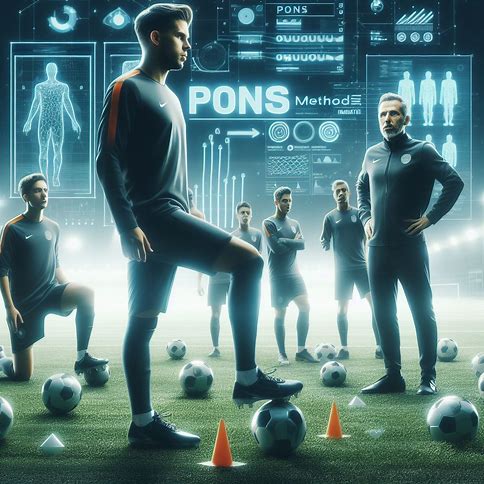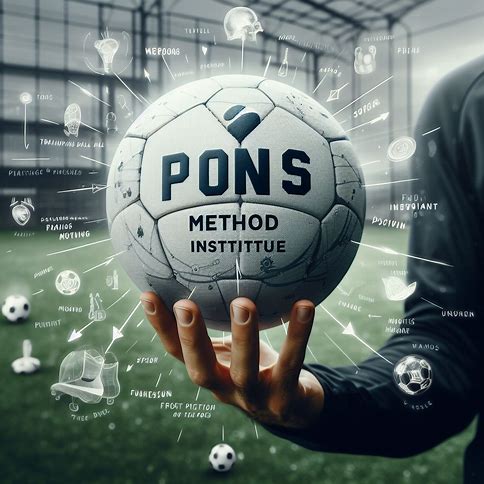
“The Football of the Future”
Modern football demands constant innovation, and the Pons Method is presented as the comprehensive response to the demands of elite sport. Developed by David Pons, a visionary in sports science, this methodology not only focuses on physical and tactical training, but also incorporates technological, psychological and scientific aspects that are transforming the way players and teams achieve their maximum performance.
A Multidimensional Method
The Pons Method, created on a small island in Thailand and enriched by years of international experience of its creator, describes itself as an “open code” for any coach in the world to apply, regardless of the resources or facilities available. This is precisely what makes it a revolutionary tool: its ability to adapt to various realities of football, from elite to youth football.
The principles of the Pons Method are many and range from “Specific Specialization,” which seeks to specialize players according to their roles on the field, to “Specific Rehabilitation,” a personalized approach to post-injury recovery. The integration of advanced technology, such as performance sensors and real-time analysis systems, makes this method go beyond the conventional.
Mirror Neurons: Science Applied to Performance
One of the fundamental pillars of the Pons Method is neuroscience, specifically the use of mirror neurons. These cells, which are activated both when performing an action and when observing another person doing it, are key to the tactical and technical development of players. Through viewing and using videos of high-level plays, footballers can internalize complex movements, which not only reinforces their technical skills, but also improves their ability to anticipate the actions of the opponent. This approach, based on science, redefines how players learn and develop in the training context.
Gamification and Training Automation
The Pons Method’s Gamification Principle highlights the importance of integrating playful elements into training, creating an environment in which players feel motivated through play and healthy competition. This not only increases the retention of tactical and technical concepts, but according to recent studies, it also improves players’ motivation and long-term engagement.
Another crucial component is the Automated Process Creation Principle (FPC), which seeks to generate automatic patterns of behavior through the integration of Big Data and performance sensors. Coaches can, for example, adjust tactics in real time thanks to live data analysis, which is essential in a competitive environment where every second counts.
Process Management and Collective Efficiency
The implementation of process management, as explored in the Pons Method courses, also redefines the way in which resource planning and optimization is approached within a team. By focusing each stage of training on processes aligned with the game model, unprecedented coherence is achieved that maximizes collective performance. It is not just a training plan; it is a comprehensive philosophy that links tactics with effectiveness and operational efficiency.
The Role of Leadership in High Performance
Leadership is another fundamental aspect of the Pons Method. To lead a high-performance team, technical knowledge is not enough; human skills and the ability to inspire are needed. David Pons has emphasized the importance of empathetic leadership, which understands and respects the needs of each player, fostering an environment where each team member feels their individual and collective value. In this sense, the Pons Method not only trains footballers, but also leaders on and off the field.
Adaptability and Sustainability: Preparing for the Future
The football of tomorrow will be much more dynamic and demanding. The teams that succeed will be those that can quickly adapt to the tactical and contextual changes of the game. The Pons Method’s Dynamic-Complex Adaptability Principle equips players with that ability, integrating predictive analysis and applied neuroscience to prepare footballers to make fast and effective decisions.
Furthermore, the Pons Method’s focus on sustainability and sports ethics highlights a commitment not only to immediate performance, but also to the long-term health and well-being of players. This principle ensures that success is not achieved at the expense of the athletes’ physical or emotional well-being, which is essential in an increasingly physically and mentally demanding sport.
A Method for All Contexts
David Pons envisions his method being implemented in both elite and youth football, with an “open source” approach that allows any coach to adjust it according to their needs. His experience in different cultures and contexts, from Saudi Arabia to Thailand, brings a multicultural dimension that makes it applicable globally. The Pons Method is not limited to a specific type of team or category, but is designed to be flexible and adapt to diverse realities.
Conclusion: Innovation at the Service of Football
The Pons Method is much more than a series of exercises or training principles. It is a revolution in the way of conceiving the development of the footballer, from the use of advanced technology to the implementation of neuroscience and comprehensive management techniques. With a focus on personalization, empathy, gamification and sustainability, this method is well positioned to define the future of football training.
The future of football belongs to those who dare to innovate, and the Pons Method is the bridge that connects tactical tradition with 21st century technology. By taking a holistic approach, this method not only ensures better performance on the field, but also comprehensive personal development that prepares players for any challenge, on and off the pitch.












